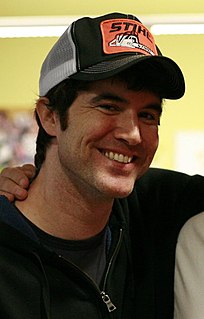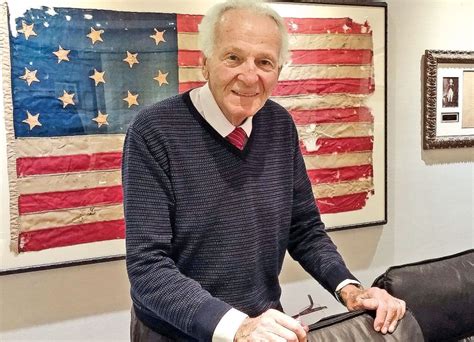A Quote by Noam Chomsky
In a capitalist system, there's a principle that if you invest, especially in a long-term risky investment, if something comes out of it, you're supposed to get the profit. It doesn't happen in our system. The taxpayer paid for it and gets nothing - assumes all of the risk, gets zero. The money goes into the pockets of Bill Gates and Steve Jobs, who are ripping off decades of work in the public sector.
Related Quotes
If you put these five things together - you can't use money to attract talent, you can't advertise, you can't take risks, you can't invest in long-term results, and you don't have a stock market - then we have just put the humanitarian sector at the most extreme disadvantage to the for-profit sector on every level, and then we call the whole system charity, as if there is something incredibly sweet about it.
But for those who really want to make the world a better place, can we start looking at Bill Gates's path instead of Steve Jobs? I like my iPad, but Gates is one of the greatest heroes of our time. For me, that has nothing to do with Microsoft and everything to do with the Bill & Melinda Gates Foundation.
For the corporation executives, the military metaphysic often coincides with their interest in a stable and planned flow of profit; it enables them to have their risk underwritten by public money; it enables them reasonably to expect that they can exploit for private profit now and later, the risky research developments paid for by public money. It is, in brief, a mask of the subsidized capitalism from which they extract profit and upon which their power is based.
In our society, real power does not happen to lie in the political system, it lies in the private economy: that’s where the decisions are made about what’s produced, how much is produced, what’s consumed, where investment takes place, who has jobs, who controls the resources, and so on and so forth. And as long as that remains the case, changes inside the political system can make some difference-I don’t want to say it’s zero-but the differences are going to be very slight.
In comparison to the U.S. health care system, the German system is clearly better, because the German health care system works for everyone who needs care, ... costs little money, and it's not a system about which you have to worry all the time. I think that for us the risk is that the private system undermines the solidarity principle. If that is fixed and we concentrate a little bit on better competition and more research, I think the German health care system is a nice third way between a for-profit system on the one hand and, let's say, a single-payer system on the other hand.
When Steve Jobs toured Xerox PARC and saw computers running the first operating system that used Windows and a mouse, he assumed he was looking at a new way to work a personal computer. He brought the concept back to Cupertino and created the Mac, then Bill Gates followed suit, and the rest is history.
We need a federal government commission to study the way our financial services system is working - I believe it is working badly - and we also need more educated investors. There are good long term low-priced mutual funds - my favorite is a total stock market index fund - and bad short term highly priced mutual funds. If investors would get themselves educated, and invest in the former - taking their money out of the latter - we would see some automatic improvements in the system, and see them fairly quickly.
In Western Pennsylvania, our parents and grandparents left us a strong system of roads, rails, bridges, locks, dams, streetcars, and more - an investment that paid off throughout the twentieth century. It now falls to our generation to rebuild and improve upon this system for the twenty-first century.




































